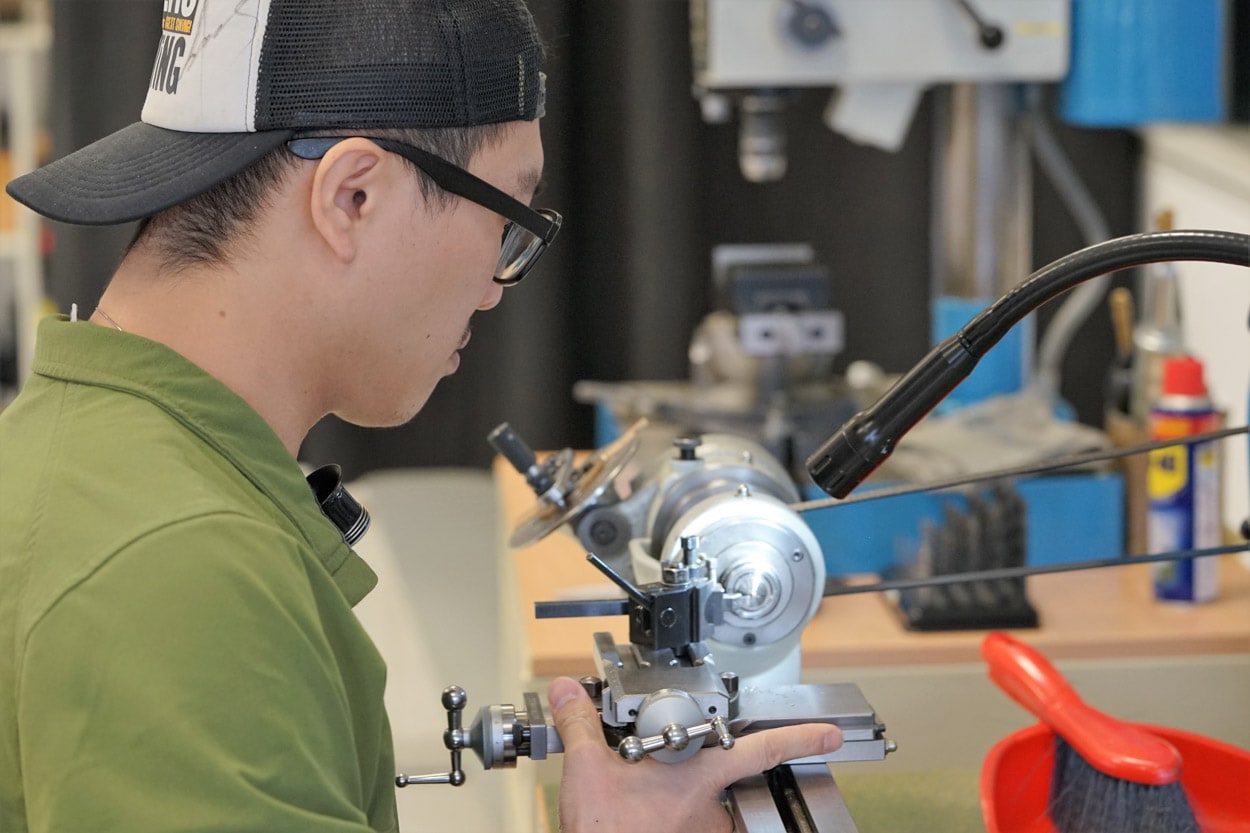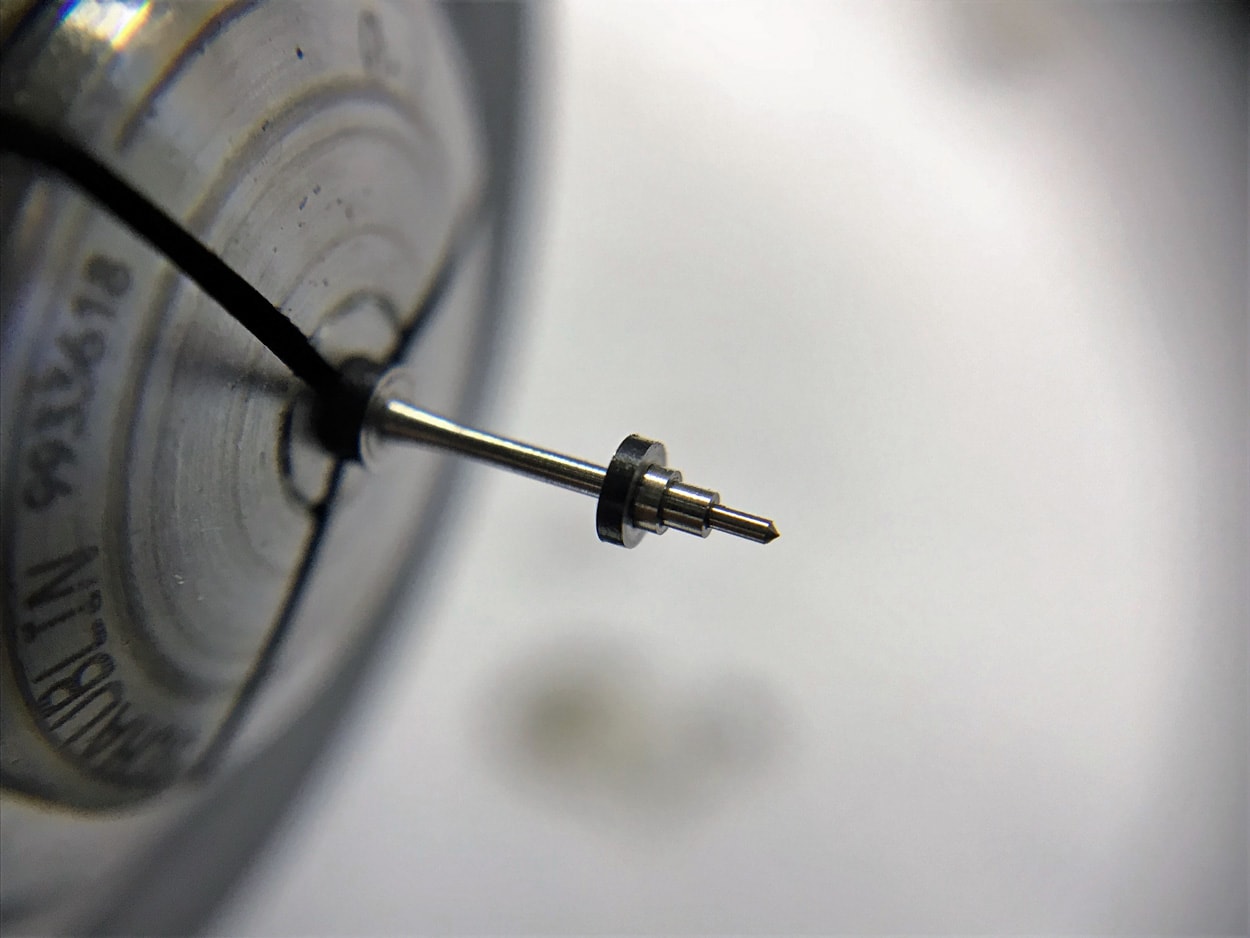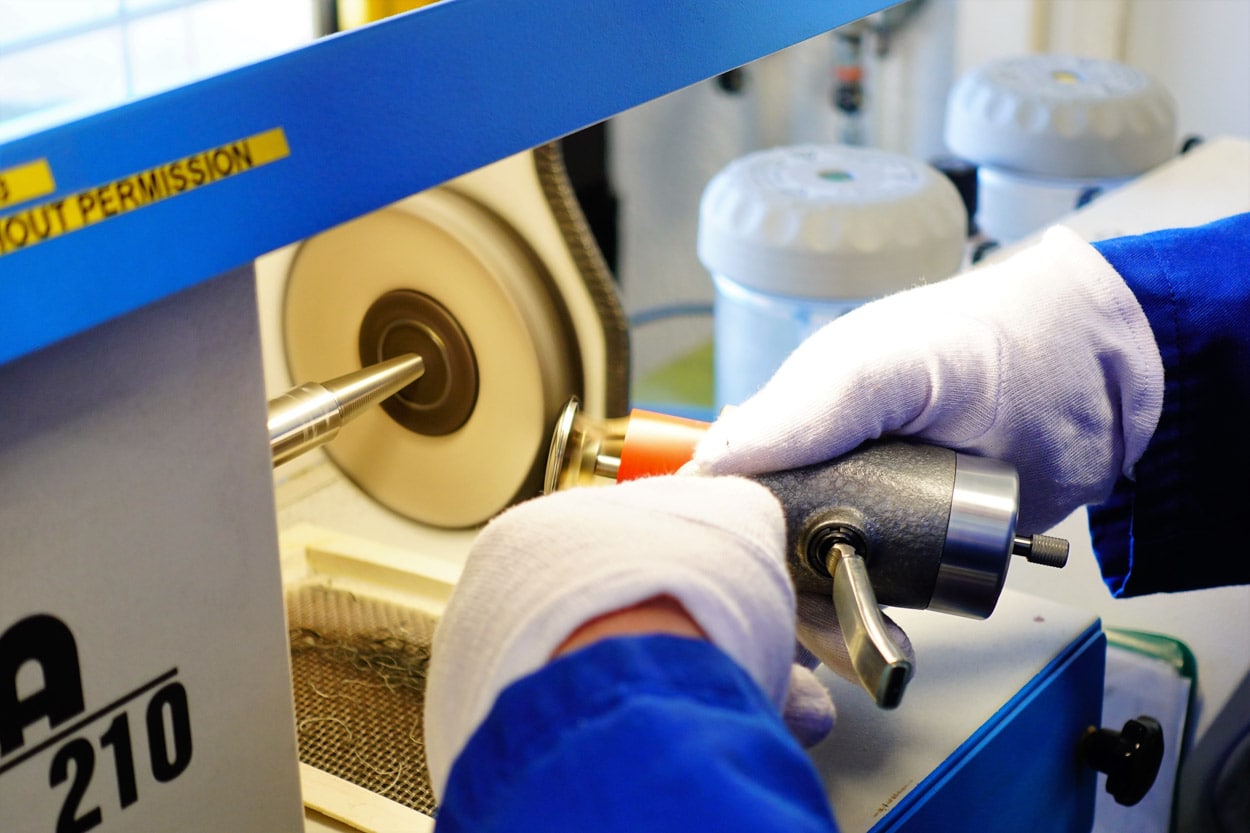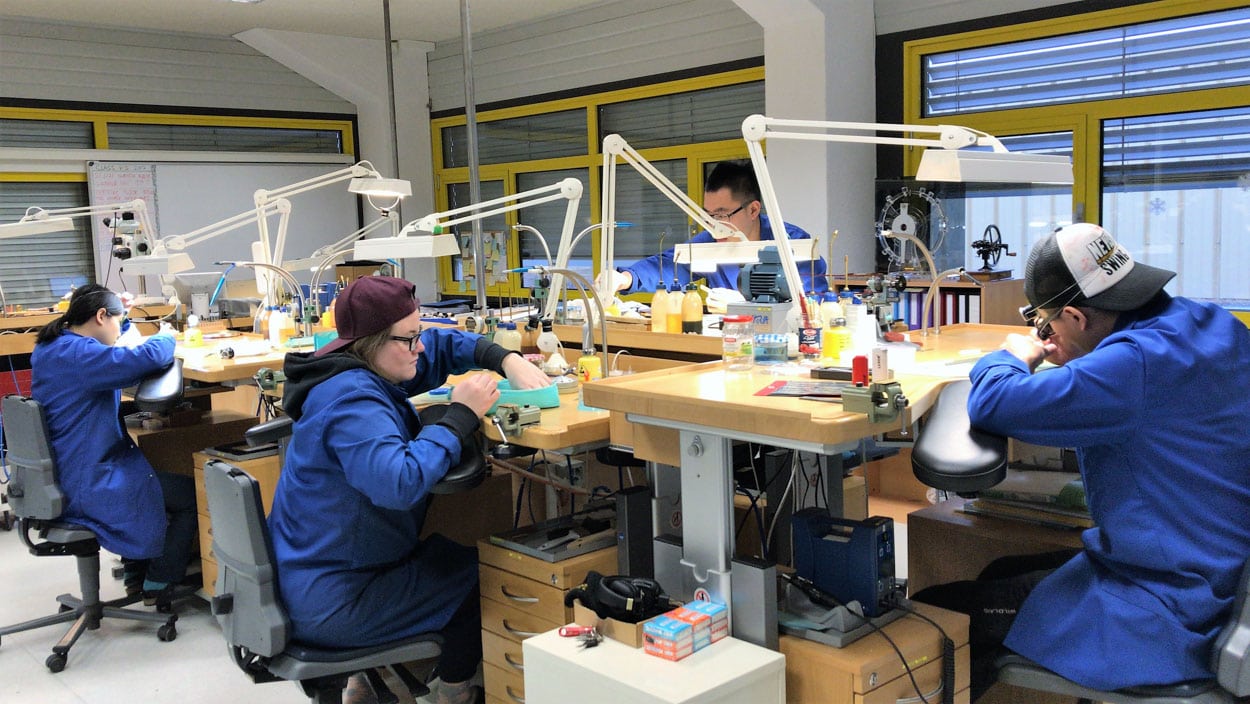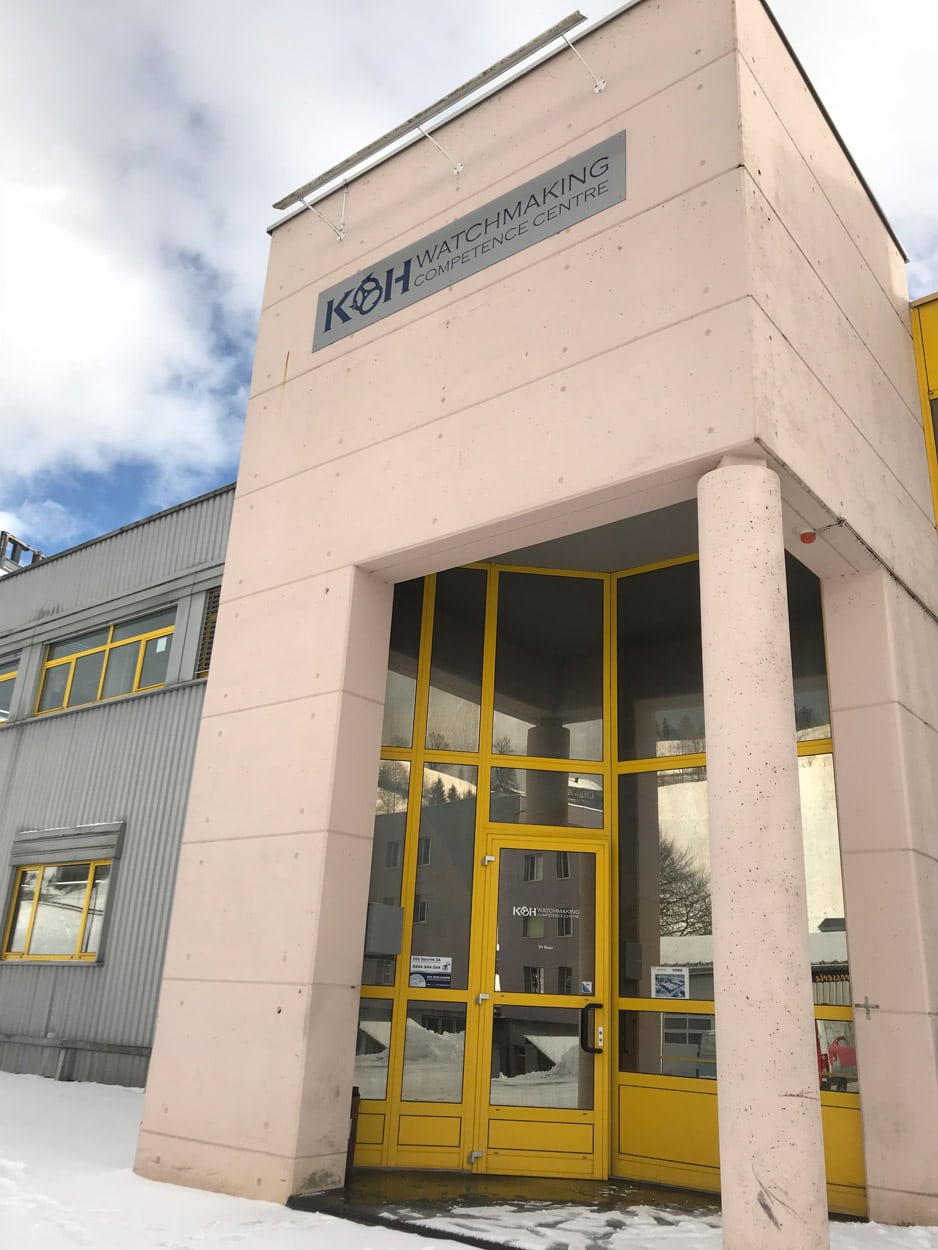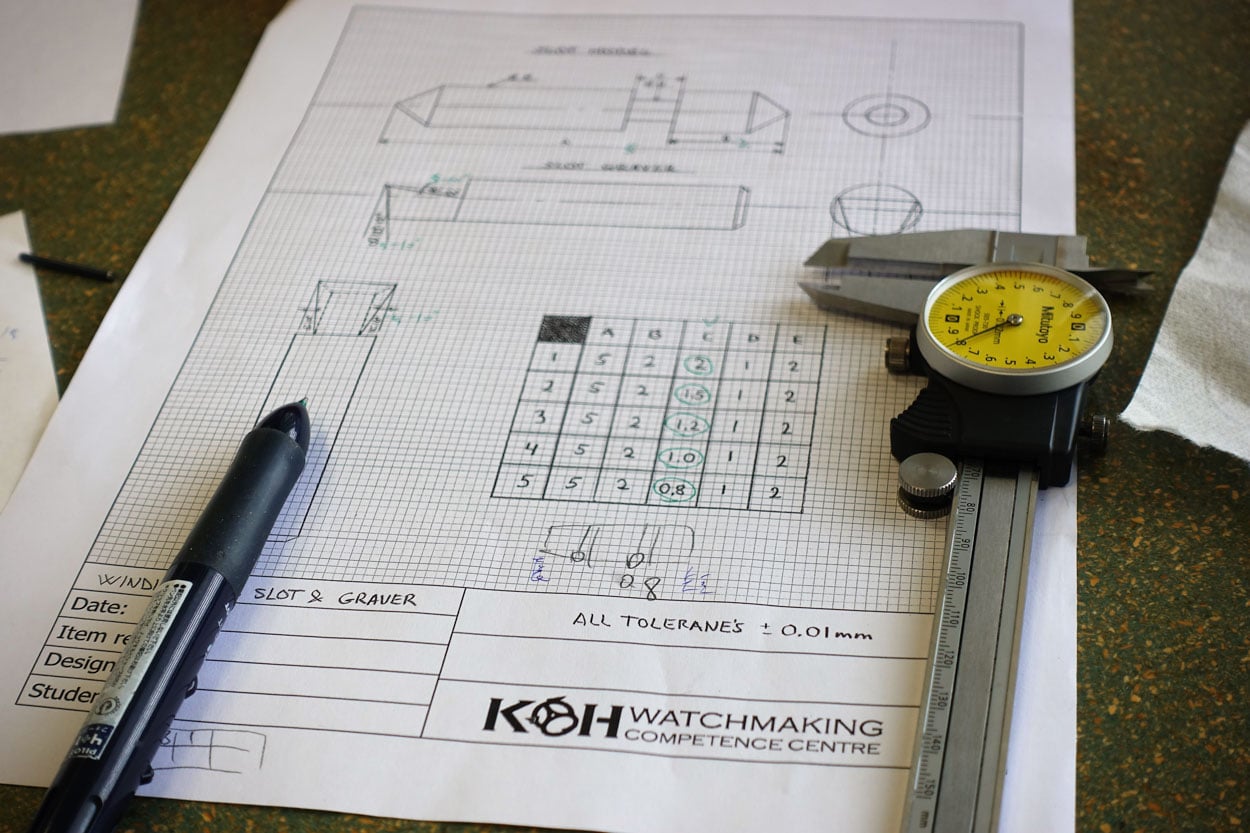A Conversation Between A Watchmaking Student And His Instructor
Henrik Korpela is the director and instructor of KHWCC (K&H Watchmaking Competence Centre) and sat down with CJ who is currently enrolled in his second and last year to hear about his future plans after graduation as well as how he found the KHWCC and what he is currently practising among other questions. As well as CJ asking Henrik (HK) questions he thinks are interesting for the readers.
K&H Watchmaking Competence Centre
HK: What made you decide to come to study watchmaking in Switzerland?
CJ: After reading the school blog and talking to the alumni who are already in the program at that time. I know the school spends a year focusing on the very fundamental part of watchmaking, micro-mechanics, that I have always liked to do but haven’t had a chance before. Knowing the school provides a complete curriculum to build up watchmaker’s knowledge and techniques re-enforced my decision to join this school.
Before coming to Switzerland, I had an apprenticeship in a small workshop in Taiwan for 8 months, after that I moved to the U.S. with my wife for her study at business school. During that time I set up my own little workshop and do watch service for friends as a hobby. I enjoyed troubleshooting when working with movements, but I wasn’t satisfied by just replacing parts. Also, I want to learn more knowledge behind the movement and manipulating techniques when working on it, especially the escapement, balance and hairspring, the most delicate part which I was always afraid to deal with them.
HK: What parts of watchmaking fascinates and excites you the most?
CJ: Micro-mechanics, such as lathe turning, jig boring and finishing. It is always fun and satisfied making tools or finishing parts.
HK: If you could choose to do anything in the watchmaking world, from your experience and knowledge so far, what would you choose to do? What is your dream?
Le Locle is a very good environment for 2 years concentration of learning “Watchmaking Kung Fu” – CJ
CJ: I would love to do some watch restoration because it’s full of challenge and every watch is different. Not just to figure out the proper approaches for restoration, but also try to keep the movement as original as it was. Meanwhile, you also have to know the history of the watch, like what techniques and materials were used during that time and then you decide how to overcome the challenge.
Finishing, I also like doing finishing very much. I really enjoy the process of filing, polishing bevels, and surface treatment like frosting.
HK: How is it to live here in LeLocle? I can imagine it must be very different from where you come from. Any advantages or disadvantages?
CJ: Le Locle is a very good environment for 2 years concentration of learning “Watchmaking Kung Fu”, because of its location hence not many distractions here. Living cost is relatively low compared to other cities in Switzerland.
For the weather, it’s very comfortable for me. I am from Taiwan, in my country during summer it’s hot and humid, and winter cold and humid. Here in Le Locle, it’s pretty dry and chill (because of its altitude).
If I want to say something disadvantageous, it could be the travel distance. To me, it feels like at least two hours to any other place by train. But the train in Switzerland is very comfortable and always on schedule, so it’s actually not a big problem for me.
HK: What has so far been the most challenging part for you to learn?
CJ: I would say, finishing. Especially internal round bevel, I still need a lot of practice. Turning pivots and hairspring is also quite challenging in the beginning (both are very delicate), but we have a lot of practice during the course, so it’s actually not really scary after practising. We just have to get used to it.
HK: What are your plans after graduating?
CJ: Ideally, I would like to find a position in after-sale service and accumulate as many experiences as possible. The best is to be able to work with vintage and modern movements at the same time.
CJ interviewing Henrik
Let’s switch roles for a minute, CJ will ask some questions to Henrik about watchmaking and the KHWCC.
CJ: After graduation where do your alumni find jobs?
HK: Some of them are working in Canada, two of them are already independent with their own brand, one is working in NYC for a famous high-end brand, two are working in London (one for a large group and the other for an independent), one student is independent in China mainland, another one in Hong Kong. I have students in England, Mexico and Germany who work for independent service centres. So it’s very mixed where they end up working, either for independents, or they become independent themselves but also for large groups and famous brands. I also had students working for the celebrated independent watchmaker Roger Smith in the Isle of Man.
CJ: What is the educational approach at KHWCC?
HK: I value individual style teaching with small classes, but we also have group discussions and group exercises so that the students also learn to collaborate and work in group settings. The students also have lots of tools and equipment at their disposal, this greatly enhances the creative part of the course as they have less downtime. As I am a watchmaker myself I try to approach the students from time to time as a professional in order to make the experience as much as possible close to how they would work when they get a job as watchmakers, towards the end of their course I approach them more and more as if they are already professional watchmakers.
As I am running my own private school it allows me great flexibility and freedom as a teacher, which I know I could never get working in an industrial school or government school, of course this also allows me much greater freedom dealing on a very individual basis with my students while at the same time keeping up with the industry standards and emphasizing on strong fundamentals such as micromechanics.
I know for sure it is a good educational approach as so far all of my graduate students after the course have gotten watchmaking jobs and remain part of this amazing discipline/art/craft without failure so far.
CJ: Why did you choose Le Locle as the location for the school?
HK: It was for very obvious reasons I choose le Locle, it’s really the centre of watchmaking and I have everything I need close by.
CJ: What is your expectation of future students?
HK: I hope they will find watchmaking interesting and that they are curious about this wonderful profession and art.
“Life is about living not observing it pass by.” – Henrik
CJ: Do you have any suggestion for them?
HK: If you passionately really want something in life, don’t give up even after failing multiple times, the best way to grow is by failing and do get used to failure if you want to be strong or have something interesting and fulfilling in your life. Although it is practical to be flexible to changes in this ever faster evolving world we live in. Anything you get easy will have no value to you tomorrow. Life is about living not observing it pass by.
CJ: What kind of character are you looking for in watchmaking students?
HK: I am not sure I look for any specific character. I think it’s better to look at how a person reacts to this type of work, if the student does not naturally reject this type of work but more naturally gravitates towards it with curiosity I think that would be a good sign even independent of the person’s character. My belief is that skills can always be trained no matter what the character is. Would it not be great to have many different types of characters in this industry?
K&H Watchmaking Competence Centre (KHWCC) in Le Locle, Switzerland, offers comprehensive classical watchmaking training. A well-equipped independent academy that offers intimate class sizes. The program of the two years full skill course covers both modern and classical watchmaking techniques, encompassing all the skills needed for watchmaking, repair and restoration. The school currently has a class of four pupils, with the new academic year starting in April 2019. Additional information on the school and its various courses can be found on their homepage: www.khwcc.ch .
*This article was written by Joseph Bentley

